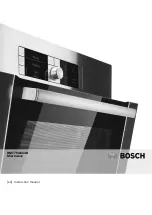
46 . MultiScope System Microscope User's Reference
Getting Ready to Use the Microscope
This chapter gives the routine procedures for getting ready to collect spectra with
the MultiScope System Microscope. It includes procedures for:
•
Setting up the FT-IR for use with the microscope;
•
Cooling the MCT detector;
•
Viewing the sample.
Use these procedures at the beginning of the day's work, or any time the
microscope has not been in use or has been used by others.
At the end of the chapter is a list of continuing adjustments that you can make at
any time that you are using the microscope.
Summary of Contents for MultiScope System
Page 1: ...MultiScope System Microscope User s Reference ...
Page 5: ...Introduction ...
Page 14: ...14 MultiScope System Microscope User s Reference ...
Page 15: ...Warnings and Safety Information ...
Page 31: ...Overview of the MultiScope System Microscope ...
Page 44: ...44 MultiScope System Microscope User s Reference ...
Page 45: ...Getting Ready to Use the Microscope ...
Page 53: ...Tutorial Using the Microscope ...
Page 63: ...Preparing Samples ...
Page 83: ...Collecting Spectra with the Microscope ...
Page 95: ...Operating the Optional Equipment ...
Page 109: ...Applications ...
Page 122: ...122 MultiScope System Microscope User s Reference ...
Page 123: ...Maintenance ...
















































